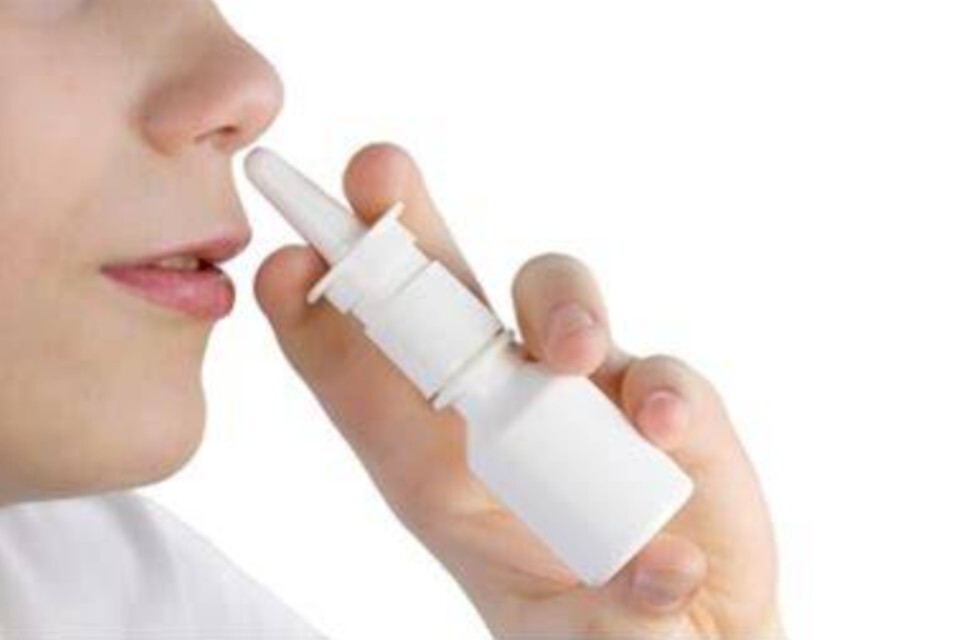The Medicines and Healthcare products Regulatory Agency (MHRA) has today, 18 July 2025, approved adrenaline (epinephrine) nasal spray (EURneffy) to be used for the emergency treatment of serious allergic reactions, known as anaphylaxis.
Anaphylaxis is a sudden, severe and sometimes life-threatening allergic reaction that causes a drop in blood pressure and breathing difficulties.
Adrenaline is a well-established treatment for anaphylaxis, commonly administered through auto-injectors. This approval marks the introduction of a nasal spray formulation, providing a needle-free alternative for the emergency administration of a potentially life-saving medication.
It is intended for use in adults and children who weigh 30 kg (about 66 pounds) or more.
Patients are reminded to familiarise themselves with the important public guidance from the MHRA on how to respond to anaphylaxis and use adrenaline auto-injectors
Julian Beach, MHRA Interim Executive Director of Healthcare Quality and Access, said
“Patient safety is our top priority, which is why we’re pleased to approve the first needle-free nasal spray formulation of adrenaline for the emergency treatment of anaphylaxis in the UK. Until now, adrenaline for self-administration has only been available via auto-injectors.
“While this represents an important new option, adrenaline auto-injectors remain a vital and potentially life-saving treatment, giving people experiencing anaphylaxis valuable time before emergency help arrives.
“We continue to encourage everyone at risk of severe allergic reactions, and those around them, to familiarise themselves with how to respond in an emergency. Resources and guidance are available on the MHRA website to help people be prepared.”
Adrenaline (epinephrine) nasal spray is a ready-to-use single dose nasal spray that delivers its entire contents (2mg) upon activation.
The plunger should not be pressed before inserting the product into the nostril, otherwise the single dose will be lost prior to use.
Adrenaline (epinephrine) nasal spray can also be used when the nose is congested due to a cold or allergy.
Patients should always carry two nasal sprays with them in case a second dose is needed and let friends or family know they have them in case of an emergency.
A full list of side effects can be found in the Patient Information Leaflet (PIL) or the Summary of Product Characteristics (SmPC), available on the MHRA website within 7 days of approval.
As with any medicine, the MHRA will keep the safety and effectiveness of the adrenaline nasal spray under close review.
Anyone who suspects they are having a side effect from this medicine is encouraged to talk to their doctor, pharmacist or nurse and report it directly to the MHRA Yellow Card scheme, either through the website (https//yellowcard.mhra.gov.uk/) or by searching the Google Play or Apple App stores for MHRA Yellow Card.
This medicine has been approved through the International Recognition Procedure (IRP). The IRP allows the MHRA to consider the expertise and decision-making of trusted regulatory partners for the benefit of UK patients.
ENDS
Notes to editors
- The approval was granted to ALK-Abelló A/S on 18 July 2025.
- This product was submitted and approved via the International Recognition Procedure.
- The MHRA conducts a targeted assessment of IRP applications and retains the authority to reject applications if the evidence provided is not considered sufficiently robust.
- More information can be found in the Summary of Product Characteristics and Patient Information leaflets which will be published on the MHRA Products website within 7 days of approval.
- The Medicines and Healthcare products Regulatory Agency (MHRA) is responsible for regulating all medicines and medical devices in the UK by ensuring they work and are acceptably safe. All our work is underpinned by robust and fact-based judgements to ensure that the benefits justify any risks.
- The MHRA is an executive agency of the Department of Health and Social Care.
- For media enquiries, please contact the newscentre@mhra.gov.uk, or call on 020 3080 7651.

